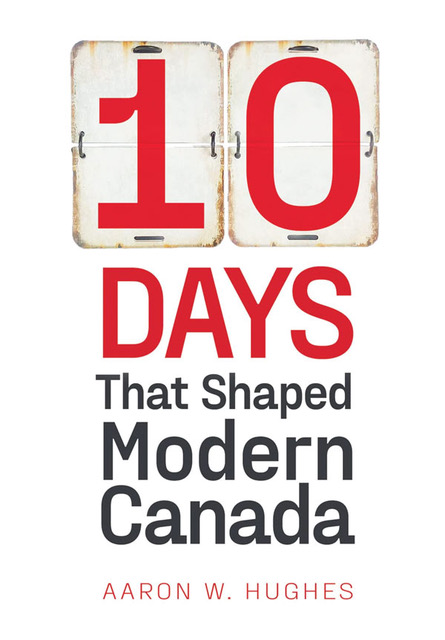As I get older, annoyingly, I find myself musing out loud that things aren’t how they used to be. Aaron W. Hughes, an Alberta-born religious studies professor, must be getting at least a little old, because he’s released a book that in essence is 260 pages of “things weren’t always like this” stories. My heart leapt, in its dangerous middle-aged way, when I was assigned to review 10 Days That Shaped Modern Canada. And then I read the introduction.
It’s a fun parlour game to pick the 10 most memorable Canadian events since 1970, and if that’s what Hughes was doing, this would be a fun little book of popular history. But he claims to have picked days that had “far-reaching consequences” for Canadians. This criterion raises the stakes considerably and should exclude events that are memorable only in a trivia contest kind of way. (Paul Henderson’s winning goal in the 1972 Summit Series, say, or the Tragically Hip’s last concert.) Sadly, it doesn’t.
Hughes believes “a majority of Canadians” share a vision of Canada that is “largely liberal, progressive, anglophone and centralist” and this shapes his choice of dates and his discussion of their significance. Which is to say that the book is a Whig history—showing Canada’s progress and unity as it marches into… well, something nicer than before. The thing is, Hughes is just wrong. Only 57 per cent of Canadians are native English speakers. More than 45 per cent of the votes in our last federal election went to parties that are either conservative or regionalist. I’m an anglophone progressive, but I don’t see anything to gain from approaching Canadian history as if its purpose was the production of more people like me.
Looking at things the way Hughes does means ignoring a lot of things. That includes anything to do with the Canadian economy and its ownership (NAFTA, the death of the National Energy Program, the decline of manufacturing in Central Canada, immigration as a hard-nosed economic issue rather than a feel-good multicultural one). It means prioritizing government Indigenous policy (the Truth and Reconciliation Commission) over actions taken by Indigenous people themselves (Elijah Harper saying no to Meech Lake, Oka, Idle No More). It means forgetting events as important as the Air India bombing and Canada’s participation in neo-colonial wars in Afghanistan and Libya and, for some reason, anything that happened between 1995 and 2015.
Hughes is evidently writing a “biography of the Charter of Rights.” I would love to read that book if it were written by Kathleen Mahoney or another such legal scholar. But if it’s anything like 10 Days That Shaped Modern Canada, I’ll pass.
Alex Rettie is a long-time reviewer for Alberta Views.
_______________________________________


